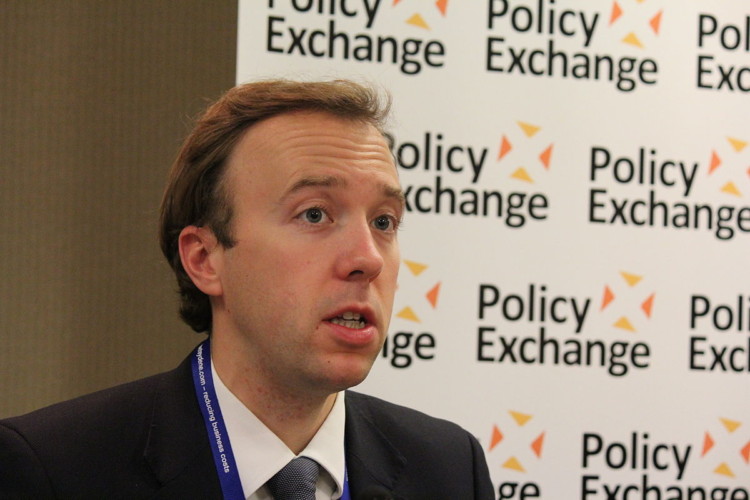By Ben Kerrigan-
The government is to abandon its promise into the second part of the Leveson inquiry into press standards, the culture secretary has announced today.
Matt Hancock, told the Commons: “We do not believe that reopening this costly and time-consuming public inquiry is the right way forward.” Under original proposals, a law change would have seen newspapers hit with costs, even when they won libel cases
The change was designed to facilitate the process of taking newspapers to court in the wake of the phone-hacking scandal at national tabloids.
The first segment of the Leveson inquiry, which examined press standards after the phone hacking scandal and the closure of the News of the World, was opened by David Cameron in 2011 and closed in 2012.
Ministers at the time promised further probe in a second part of the process intended to hold the press to further account. It promised to examine closely relationships between the media and the police, including how journalists acquired some confidential information.
However, in his statement, Hancock said there had been many changes since the first Leveson report in 2012, including to police procedures and the way the media operated. There were cries of “shame” in the Commons as he made the announcement.
“It’s clear that we’ve seen significant progress, from publications, from the police and from the new regulator,” Hancock said. “The world has changed since the Leveson inquiry was established in 2011. Since then we have seen seismic changes to the media landscape.”
The work of Sir Brian Leveson had had “a huge impact on public life”, Hancock said, but there was also a need for a press that could properly hold the powerful to account.
“Britain needs high-quality journalism to thrive in the new digital world,” he added. “We seek a press – a media – that is robust and independently regulated. That reports without fear or favour.”
The media landscape is now very different, the culture secretary added, with a 30% fall in newspaper circulation, the closure of many local newspapers and the growth of social media.
Hancock also announced that the government would not put into effect section 40 of the Crime and Courts Act, obliging media organisations to pay the legal costs of libel cases whether they won or lost, and would repeal it “at the earliest opportunity”.
DISAPPOINTMENT
Tom Watson, Labour’s shadow culture secretary, who has long campaigned for victims of press intrusion, said the decision was “a disappointment, a breach of trust and a bitter blow”, adding: “But it is not in any way a surprise.”
Watson, currently under pressure over funding to his office from the press reform campaigner Max Mosley – who was this week revealed to have published a 1961 leaflet linking non-white immigrants with disease – said that those in the government who had backed Leveson 2 when it was announced “didn’t really mean it”.
He added: “They were waiting for the wind to change, waiting for the fuss to die down.”
Calls for Watson to return more than £500,000 in donations from Mosley, who also has links to the media regulator Impress. Labour has said it will accept no more donations from Mosley.
He replied to Hancock by addressing the Mosley donations, saying: “If I thought for one moment he held those views contained in that leaflet of 57 years ago, I would not have given him the time of day.
“He is a man, though, who in the face of great family tragedy and overwhelming media intimidation, chose to use his limited resources to support the weak against the strong.”




